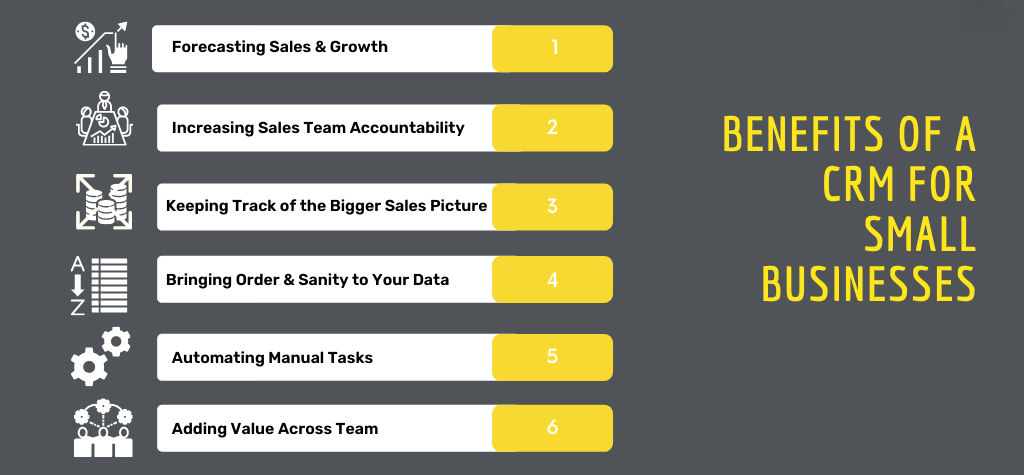Boosting Business Excellence: Essential Tools for Entrepreneurs to Speed Up Success

The blog emphasizes the importance of various business tools in today's competitive landscape. It highlights Customer Relationship Management (CRM) for enhancing customer relationships, Human Resource Management Systems (HRMS) for empowering the workforce, and other essential tools like accounting software, business intelligence tools, marketing automation platforms, and more.
In today's fast-paced and competitive business world, success hinges on efficiency, productivity, and customer satisfaction. That's where powerful business tools for entrepreneurs like Customer Relationship Management (CRM), Human Resource Management Systems (HRMS), and a range of other business applications come into play. In this article, we'll delve into why these tools are indispensable for businesses and how they can drive growth and success.
1. CRM: Enhancing Customer Relationships
In the symphony of business operations, customers are the audience, and CRM is the conductor that ensures every interaction is harmonious. CRM tools for entrepreneurs
enable businesses to:
Organize Customer Data: CRM systems gather and centralize customer data, providing a 360-degree view of each customer's history and preferences.
Personalize Interactions: With insights from CRM, businesses can tailor their communications, offers, and services to meet individual customer needs, fostering loyalty and repeat business.
Streamline Sales: CRM helps sales teams manage leads, track opportunities, and optimize sales processes, resulting in higher conversion rates and revenue growth.
2. HRMS: Empowering Your Workforce
Employees are the backbone of any organization, and HRMS acts as the conductor for your human resources. HRMS tools offer:
Efficient HR Processes: Streamline recruitment, onboarding, payroll, and performance management, reducing administrative overhead and ensuring a satisfied workforce.
Data-Driven Decisions: HRMS systems provide insights into employee performance and engagement, facilitating better HR strategies and talent retention.
Compliance and Security: HRMS ensures that HR processes adhere to regulations, safeguarding sensitive employee data.
3. Accounting Software:
Beyond basic bookkeeping, accounting software like QuickBooks or Xero can handle payroll, invoicing, expense tracking, and financial reporting, ensuring financial stability.
4. Business Intelligence (BI) Tools:
BI tools like Tableau, Power BI, or Google Data Studio help analyze and visualize data, providing valuable insights for informed decision-making.
5. Marketing Automation Platforms:
Tools like HubSpot, Marketo, or Mailchimp streamline marketing activities, automate email campaigns, and analyze customer interactions to improve marketing strategies.
6. Inventory Management Systems:
These tools help businesses optimize their inventory levels, reduce carrying costs, and prevent stockouts or overstocking. Examples include TradeGecko and Fishbowl.
7. Customer Support and Help Desk Software:
Tools like Zendesk or Freshdesk assist in managing customer inquiries, support tickets, and feedback, enhancing customer satisfaction.
If you operate an online store, e-commerce platforms like Shopify, WooCommerce, or Magento can help manage products, sales, and customer interactions.
9. Communication and Collaboration Tools:
Tools like Slack, Skype, Microsoft Teams, or Zoom facilitate seamless communication, file sharing, and collaboration among remote or distributed teams.
10. Cybersecurity Solutions:
To protect against cyber threats, consider tools like antivirus software, firewalls, and cybersecurity monitoring services.
11. Data Analytics Tools:
Beyond BI, specialized data analytics tools like Google Analytics, Adobe Analytics, or Mixpanel focus on understanding user behaviour on your website or app.
12. Customer Feedback and Survey Tools:
Platforms like SurveyMonkey or Qualtrics help gather valuable customer feedback to improve products and services.
Remember that the choice of tools should align with your business's specific needs and goals. Implementing the right combination of tools can enhance efficiency, productivity, and competitiveness in today's dynamic business environment.
Recommended For You

02 Sep 2023
Boosting Business Excellence: Essential Tools for Entrepreneurs to Speed Up Success

07 Sep 2023
Unlocking Success: Digital Transformation Strategies for Modern Businesses

11 Sep 2023
5 Tech Trends Shaping the Future of Business

14 Sep 2023
WhatsApp's New Channels Feature: A Game-Changer in Messaging

16 Sep 2023
The Future of AI in SaaS Development: A Revolution in Software

18 Sep 2023
How to Build a Strong Personal Brand for Business Success

25 Sep 2023
AI: Expectations vs. Reality

24 Oct 2023
How CRM Can Benefit Small Businesses: Case Studies and Success Stories

26 Oct 2023
Why You Might Be Failing at Information Technology

06 Nov 2023
Information Technology: 6 Steps to Make Sure More Engagement
